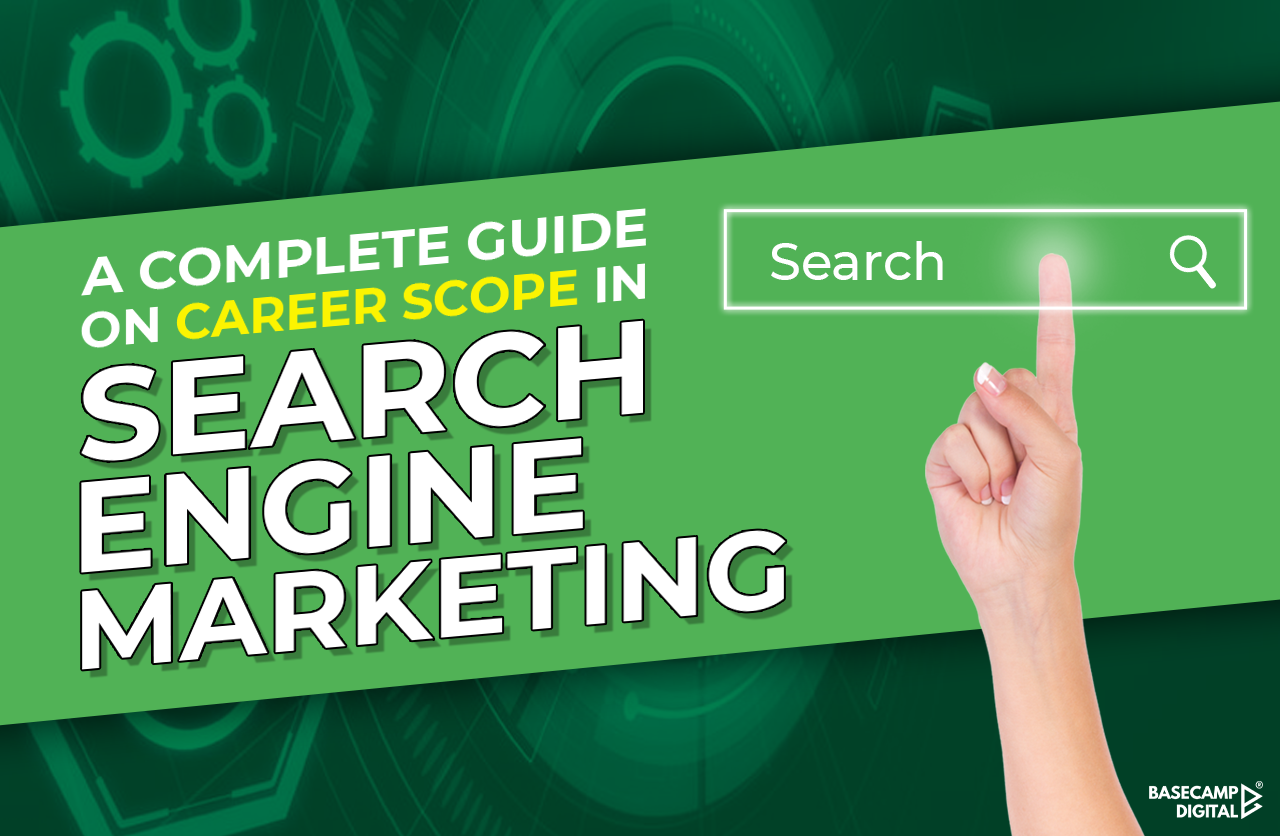Search engine marketing (SEM) is a constantly-evolving field with big potential for career growth and success. With the increasing popularity of digital marketing, the need for skilled SEM professionals has grown significantly. Aspiring SEM professionals need to stay on top of the latest trends, technologies, and best practices in order to stand out and succeed in this competitive field. As such, having a clear and comprehensive understanding of SEM career paths, courses, and tips is essential. With the right knowledge and dedication, it’s possible to find lucrative and fulfilling careers in SEM that can take you to the top of the industry.
What is search engine marketing (SEM)?
Search engine marketing (SEM) is the process of promoting websites by increasing the amount of organic search traffic they receive. SEM is a marketing strategy that uses paid advertising to increase the visibility of a website, product, or service in search engine results. The main goal of SEM is to increase sales by bringing in new customers through a variety of online marketing channels and/or websites, such as social media, blogs, review sites, and more. SEM can be divided into two categories: organic search engine optimization (SEO) and paid search engine marketing (PPC). SEO is the process of optimizing a website for organic search visibility, and PPC is the process of increasing paid search visibility. SEM is primarily used to drive traffic and improve visibility in search engine result pages (SERPs).
SEM career paths
As a search engine marketing (SEM) professional, you can choose to specialize in one of three areas: paid search, organic search, or analytics. Each of these areas offers unique and rewarding career paths that can take you to the top of the industry. – Paid search professionals manage paid advertising campaigns through various online channels, such as Google, Bing, and social media. This includes buying media, creating and managing ads, analyzing results, and optimizing campaigns. With experience and a proven track record, paid search marketers can transition into management roles, such as account managers or directors. – Organic search marketers create, optimize, and maintain content that attracts user attention and ranks well in search engines. This includes SEO copywriting, analyzing keyword data, creating content blueprints, and managing internal linking strategies. With experience and a proven track record, organic search marketers can transition into management roles, such as SEO directors. – Analytics professionals use data to improve digital marketing campaigns and company operations. This includes analyzing website traffic, detecting website issues, creating reports, and creating custom dashboards and visualizations. With experience and a proven track record, analytics professionals can transition into management roles, such as data or insights directors.
SEM races
SEM professionals come from a variety of backgrounds, including but not limited to marketing, writing, engineering, and computer science. No matter what your background is, you can develop the skills necessary to succeed in the SEM field. With the right courses, certifications, and practice, anyone can break into the SEM field. Marketers with a background in content creation and SEO have the skills and experience necessary to excel in the SEM field. With the right training, they can learn how to create and manage PPC campaigns and create top-notch SEO content. Computer engineers and software developers with a background in code can develop the skills necessary to succeed in the SEM field. With the right courses, certifications, and practice, these engineers can learn how to create top-notch PPC campaigns and manage SEO content.
SEM best practices
Aspiring SEM professionals should follow these best practices to succeed in the field and on the job. – Invest in your education. It’s essential to continually invest in your education to stay on top of the latest trends, technologies, and best practices in the SEM field. Through courses and certifications, you can learn how to create and manage PPC campaigns and create top-notch SEO content. – Develop your technical skills. SEM professionals must have strong technical skills to succeed in the field. This includes having a strong understanding of various online marketing channels, such as social media, Google AdWords, Bing Ads, and AdRoll. In addition to developing your technical skills, you should create a portfolio of work and/or apply for internships to gain valuable experience. – Develop your soft skills. Along with technical and educational skills, you must also develop your soft skills to succeed in the field. This includes having strong communication, problem-solving, and analytical skills.
Benefits of SEM
There are many benefits to working in the SEM field. Some of these benefits include high salaries, flexible work schedules, and great career paths. With the right training and experience, SEM professionals can enjoy high salaries, flexible work schedules, and promising career paths.
Challenges of SEM
Along with these benefits, SEM professionals must also overcome several challenges. Some of these challenges include long hours, fierce competition, and technical learning curves. With the right training and experience, SEM professionals can overcome these challenges and succeed in this competitive industry.
SEM tips for success
Aspiring SEM professionals should follow these tips to succeed in the field and on the job. – Build a network. Success in the SEM field is often determined by who you know, so you should work to build a network as soon as possible. This includes joining professional organizations, attending conferences, and connecting with colleagues. – Create a strong portfolio. Success in the SEM field is also determined by what you’ve accomplished, so you should create a strong portfolio as soon as possible. This includes creating and managing PPC campaigns and creating top-notch SEO content. – Find an employer that invests in training. You must work for an employer that invests in training, especially if you are new to the industry. An employer that invests in training will give you the skills and experience necessary to succeed in the industry.
Tools for SEM professionals
Aspiring SEM professionals can use the following tools to succeed in the field. – SEM platforms: These online platforms allow you to manage PPC campaigns and create SEO content. SEM platforms include Adobe, SEMrush, and HubSpot. – Keyword research tools: These tools allow you to research keyword data that drive the most traffic to your website. Keyword research tools include SpyFu, SEMrush, and Keyword Explorer. – SEO tools: These tools allow you to optimize SEO content and track website performance. SEO tools include SEMrush, SEO Toolkit, and SEO for Excel. – Internal linking tools: These tools allow you to manage internal linking strategies and optimize website structure. Internal linking tools include SEO Toolkit and SEO for Excel.
Finding SEM jobs
Aspiring SEM professionals can find jobs in the field through freelance work and company employment. However, to secure a full-time position, you must have the right experience and proven track record. To prove your worth and find full-time employment, you can create a killer resume and cover letter. Your resume and cover letter must showcase your skills, experience, and qualifications, and they must convince employers to hire you.
Conclusion:
Search engine marketing, also known as SEM, is a marketing strategy that uses paid advertising to increase the visibility of a website, product, or service in search engine results. SEM is often confused with SEO. While SEM and SEO are related, they are not the same. SEO is the process of optimizing a website for natural search visibility. SEM is the process of increasing paid search visibility. SEM is primarily used to drive traffic and improve visibility in search engine result pages (SERPs).
For the best chance of being found by potential customers in search engine results pages (SERPs), you need a strategy that boosts your business and content’s ranking on search engine result pages (SERPs). This means optimizing your website and PPC campaigns using the right tools and tactics. SEM is constantly evolving and this guide will be updated and revised as time goes on.




